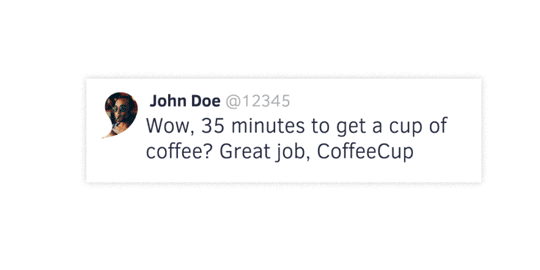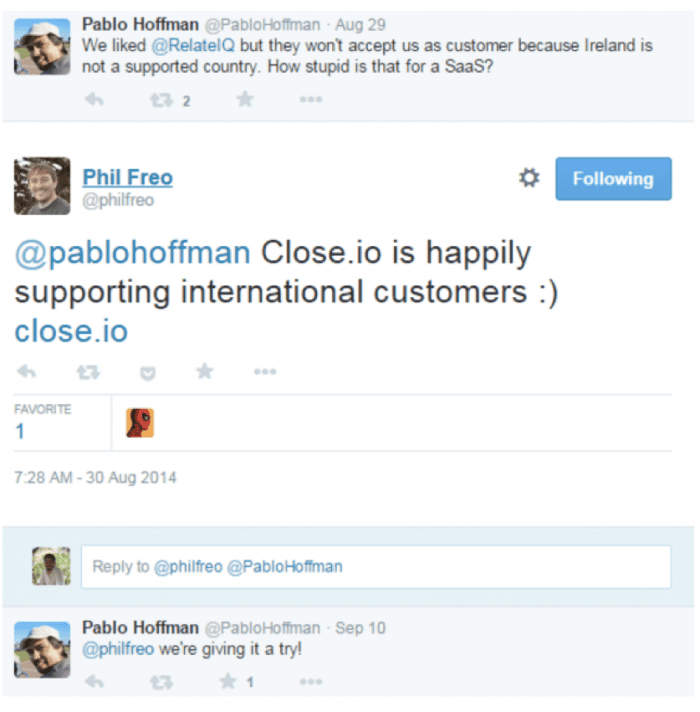5 ways to excel at social customer experience using AI
A recent McKinsey report suggests that as many as 70% of buying experiences are evaluated by customers based on how they're treated. No wonders that ‘voice of customer’ has been the concern for marketers from some years now.
Download Premium Resource – AI and Machine Learning for marketing
Today, now even smaller businesses can apply publicly available algorithms or off the shelf machine learning services to generate useful insights and create prediction models based on their customer’s behaviours.
Access the AI and Machine Learning for marketing briefing
However, social media poses a challenge to digital marketers because understanding and evaluating the voice of the customer across half a dozen platforms is an analytics nightmare. This is where social media listening tools came to the forefront and solved some of the problems.
Top rated AI-powered social media listening and monitoring tools offer advanced sentiment analysis to help you make sense of the millions of conversations that happen related to your brand every week.
In this article, I will show you 5 ways in which brands are already improving their customer experiences on social media using sentiment analysis.
1. Near real-time responses to manage crises
The secret of converting a potentially negative situation on social media into a neutral or positive situation is speed.
With AI tools becoming more and more accurate at identifying the sentiment associated with a social media post, digital marketers now have the artillery to respond to customer comments and queries in near real-time.
Sentiment analysis can quickly flag posts that are potential negative comments about your brand, customer complaints, or an ugly jibe by a competitor. This enables you to blanket down the fire, and promote your speed-to-answer as a positive brand trait. Here’s an example, provided by Talkwalker:

This post could cost CoffeeCup a big chunk of its store footfall. However, if the store manager could talk to the customer, make the coffee on the house, and top it with a slice of the best banana pie in house, the subsequent post by the same infuriated customer could make his brand the talk of social media.
2. Identifying the seldom-stated requirements and expectations of customers
Feedback mechanisms, let’s face it, are limited. As soon as you hand over a feedback form to a customer, you either get disinterested 4/5 ratings, or comments that are mere over-burnt frustration that would only go if you offer designer ice cream tubs for free to insatiable customers!
AI-powered sentiment analysis is smart enough to identify social media mentions of your brand and pick up comments and posts that could carry actionable insight on what your customers really want. The CoffeeCup example we covered earlier is also a testimony of how the café could have come to know of its long service times had it been ‘listening’ to social media sentiments earlier.
Not long back, digital marketers only had the options of using structured surveys and questionnaires to elicit useful feedback from customers on social media. Topped with AI-based sentiment analysis, these feedback campaigns can be easily monitored to collect all user-generated content that could offer insight. Because the percentage of users that actually respond to direct queries by brands is diminishing (in Q2, 2015, only 30% of 7 million brand questions on Twitter were answered), sentiment analysis is bound to be the replacement for social media surveys in the near future.
3. Creating high impact brand communications campaigns
With every business jumping on the social media bandwagon, it’s becoming increasingly difficult for brands to deliver their messages with the right impact. Proper usage of hashtags and in-depth sentiment analysis can help here.
Powered by ever-improving algorithms, sentiment analysis tools can:
- Report events such as sudden spikes in brand mentions
- Help you compile lists of influencers talking about your brand
- Make you aware of trends to reveal the right demographics interested in your products and brands.
This insight helps you create high impact messages, and helps you target them at audiences that are likely to respond to them.
4. Understand your social media brand reputation
Influencer marketing tools like Influence.co has given the power to small and medium-sized businesses to improve their social reputation by connecting with various micro influencers.
Many times, all a brand needs to know in order to succeed on social is to understand what worked in the past, and do more of it. Sentiment analysis can make that happen by helping brands understand how their social media reputation has panned out.
Tools like Trackur can quickly figure out the data and provide sentiment analysis and influencer scoring. By mapping reputation improvement spikes with the social campaigns that brought them about, and by conducting demographics level reputation tracking, brands can significantly improve customer experiences by offering them more of what they already liked.
Too many times, however, brands commit the mistake of treating only ‘share of voice’ as a representation of how well they’re doing on social media. What if 80% of the mentions are negative? Here’s an example:

This post is a ‘mention’. But it’s negative. Chipotle would not want any of it. Surprise, the brand used sentiment analysis to fight off the crisis.
5. Leveraging competition analysis to bag some customers
Competition analysis can be the biggest enabler for brands to prevent brand switching amongst customers, and even get back lost customers from competing brands.
AI fuelled sentiment analysis has a lot to give here. Not only can such tools help you remain aware of the kind of social media buzz your strongest competitors are making, but also help you compare your social media campaigns against theirs.
Look to leverage negative mentions of your competitors to suggest your products as alternatives, and take their positive mentions as inspirations. Here’s a killer example of how Close.io sneaked into a conversation to create a well-greased gateway for a potential customer.

Sentiment analysis can be the enabler of runaway success for social media brands; use it while it’s still a lever of competitive advantage.
The vehicle of digital marketing is at the cusp of milestone now, with AI empowered social media listening and sentiment analysis ready to re-transform social media as a goldmine for brands.

Guy Sheetrit is the CEO at
Over the Top SEO, an accomplished senior executive with 14 years of success across the technology, marketing and software development industries. With extensive experience providing customized SEO marketing solutions for ecommerce, local SEO and Fortune 500 companies










